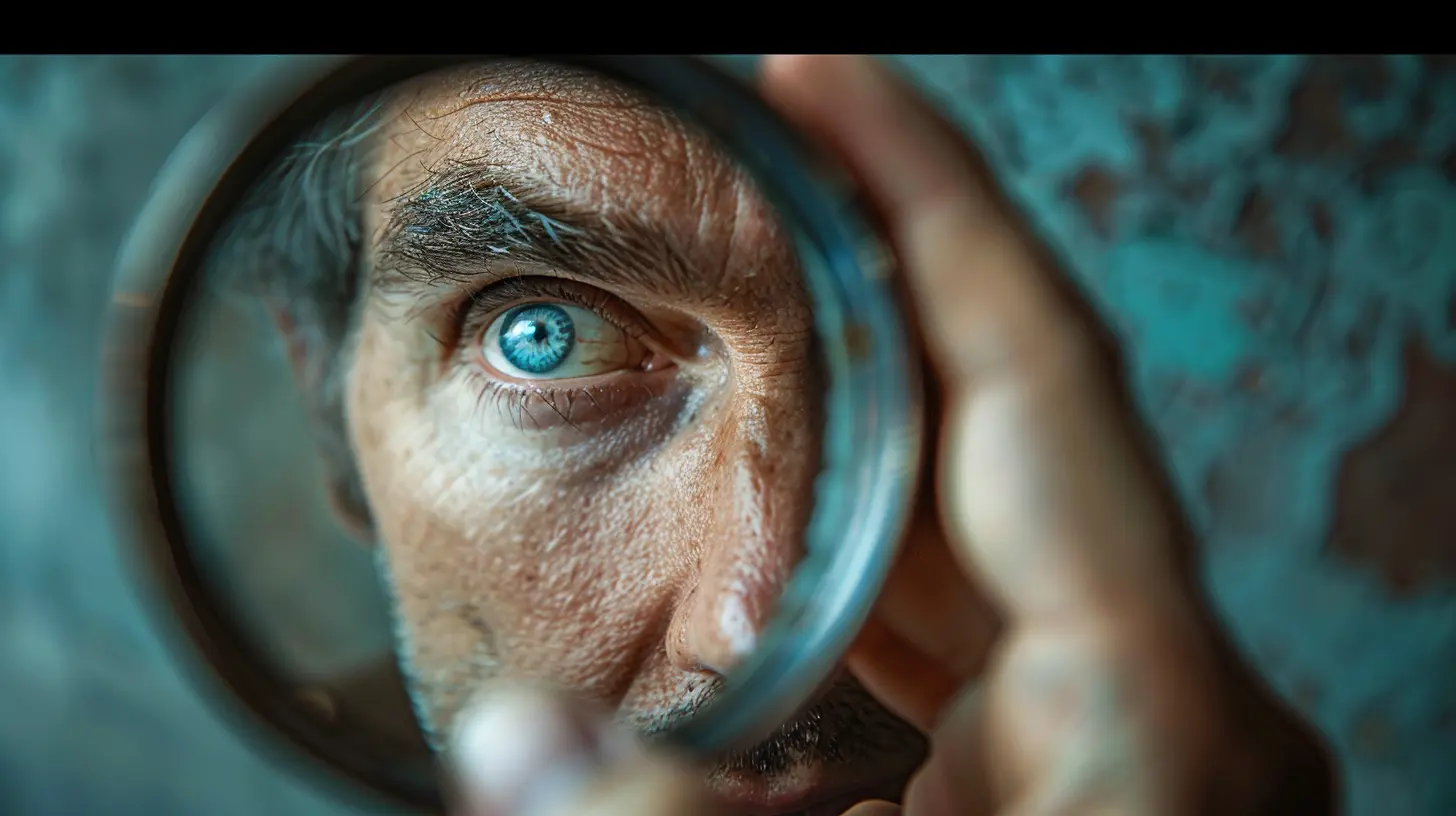The Hidden Epidemic of Narcissistic Personality Disorder
5 October 2025
The world spins faster than ever before. We swipe more than we speak. We post more than we ponder. In this whirlwind of selfies, likes, and carefully curated lives—something darker lurks beneath the surface. It's the growing shadow of a silent storm: Narcissistic Personality Disorder (NPD).
And let me tell you, it’s not just that one friend who won’t stop talking about themselves. It’s deeper. It’s darker. And it’s spreading in ways most people don’t even notice. Let’s peel back the layers, shall we?
What Is Narcissistic Personality Disorder, Really?
So, what’s the big deal with NPD?It’s more than just being full of yourself. We all have moments where we want attention. We all like compliments. That’s human. Narcissistic Personality Disorder, though—it’s a whole different beast.
At its core, NPD is a mental health condition marked by:
- An inflated sense of self-importance
- A deep need for excessive admiration
- A lack of empathy for others
- Fragile self-esteem underneath it all
It's like watching someone wear a golden mask—shiny on the outside, hollow underneath.
Why Is Narcissism So Hard to Spot?
Ever tried catching a shadow with your bare hands?That’s what it’s like trying to identify someone with NPD. It’s slippery. It’s subtle. Most narcissists don’t even realize they are one. And many of them are charming—magnetic, even.
They speak well. They impress at parties. They have confidence oozing from their pores. They can win you over in seconds. But behind that charm is a need—a hunger—for control, validation, and power.
And once you’re hooked? That’s when the mask starts to slip.
The Cultural Petri Dish: How Society Fuels Narcissism
Let’s be honest—our culture kind of worships narcissism, doesn’t it?We idolize celebrities who flaunt their wealth. We call influencers “goals” simply because they have six-figure follower counts. Social media? It's basically a playground for narcissistic traits.
Swipe. Like. Comment. Validate.
We’ve built a digital world where being admired feels like oxygen. And in this environment, narcissistic traits are not just accepted—they’re celebrated. It’s like we’re unknowingly nurturing a field of emotional weeds.
But here's the kicker: not everyone who’s selfie-obsessed has NPD. The issue is when those behaviors become patterns. When they’re rooted in deep psychological dysfunction. When they hurt others.
That’s when the real epidemic begins.
The Hidden Wounds Behind the Mask
Let’s take a moment to look beneath the surface.Most people assume narcissists love themselves too much. Ironically, it’s the opposite. Many people with NPD come from traumatic childhoods—neglect, overvaluation, or inconsistent parenting. Somewhere along the way, they learned that love is earned, not given. So, they built a persona that could win it.
But it’s fragile—like glass walls with gold paint. Beautiful at a glance, breakable with a tap.
That’s why criticism feels like an attack. That’s why empathy is absent. That’s why relationships with narcissists often feel like walking a tightrope over shark-infested waters.
You never know what will make them snap.
The Impact on Relationships: Emotional Landmines
Dating a narcissist?It often starts like a dream. They adore you. They mirror your interests. They make you feel like the most special person on Earth.
But slowly, things shift. The compliments turn to criticisms. Your achievements are downplayed. Your feelings are invalidated. Gaslighting sneaks in like smoke under a door.
You start questioning yourself.
“Maybe I am overreacting.”
“Maybe I am too sensitive.”
This is the narcissist’s twisted dance—a cycle of love bombing, devaluation, and discard.
And it doesn’t stop at romantic relationships. Narcissistic parents can leave deep emotional scars. Narcissistic bosses can create toxic work environments. Their ripple effect damages everything in their path.
Is There Any Hope? Can Narcissists Change?
Here’s the million-dollar question.Can someone with NPD actually change?
The answer isn’t simple. It’s not a yes or no. It’s more like… maybe, but only if they want to. And that’s the hard part. Because most narcissists don’t see a problem. If they do seek therapy, it’s often because someone threatens to leave—or they want to manipulate the therapist.
But with time, insight, and a whole lot of work, some do make progress. Not all, but some. It requires deep self-reflection and a willingness to feel emotions they’ve buried beneath bravado.
Therapy, especially psychodynamic or schema therapy, can help. So can mindfulness and empathy training. But it’s a long haul—no quick fixes here.
How Do You Spot a Narcissist in Everyday Life?
You won’t always find them shouting from rooftops. Some wear their narcissism like a velvet cloak: soft, subtle, and dangerous.Here are a few red flags to watch for:
- They dominate conversations
- They play the victim when called out
- They never truly apologize—only deflect
- They have a “hero/villain” mindset
- They feed off admiration like a plant needs sunlight
Trust your gut. If you constantly feel drained after interacting with someone—it’s a sign. Your energy is being siphoned.
Setting Boundaries Without Burning Bridges
So what do you do if there’s a narcissist in your life?The answer might surprise you: boundaries.
Clear. Firm. Consistent.
You don’t need to go no-contact unless things turn toxic or abusive. Sometimes, limited contact or emotional detachment does the trick. Think of it like building an emotional firewall—you let some signals through, but you control the access.
And above all—don’t try to fix them. That’s not your job. It’s like trying to fill a bucket with no bottom. You’ll exhaust yourself and still fail.
Your peace matters, too.
Narcissism vs. Confidence: Know the Difference
Let’s clear something up real quick.Being confident is not the same as being narcissistic.
Confidence is grounded. It says, “I know my worth, and I respect yours too.” Narcissism screams, “I’m better than you, and I need you to know it.”
Big difference, right?
In a world that confuses arrogance with strength, we need to redefine what healthy self-worth looks like. It’s not in the likes. It’s not in the praise. It’s in the quiet assurance that you matter, even when no one’s watching.
Healing from Narcissistic Abuse
If you’re healing from a relationship with a narcissist, I want you to hear this:It wasn’t your fault.
You didn’t imagine it. You weren’t "too sensitive.” You were manipulated by someone who knew exactly how to twist your mind and emotions.
Healing takes time. It’s like untangling a necklace that’s been in a knot for years. But step by step—therapy, journaling, support groups, self-care—you find your way back to yourself.
You rebuild your identity. And eventually—you glow again. Not for anyone else. For you.
Raising Awareness: The Power of Naming the Beast
The more we talk about NPD, the more we can understand it.And understanding leads to compassion—not just for the person suffering from the disorder, but for the people affected by them.
This isn’t about villainizing. It’s about validating experiences and making space for healing. For awareness. For boundaries. For evolution.
Because the more light we shine on the hidden epidemic of Narcissistic Personality Disorder, the less power it has to operate in the dark.
Final Thoughts
In a world saturated with noise, ego, and image—NPD thrives like mold in the crevices of our culture. But awareness is our strongest weapon. It slices through manipulation. It protects the heart. And it empowers us to choose authenticity over illusion.So, keep asking the hard questions. Keep setting boundaries. Keep choosing empathy—but don’t confuse it with self-sacrifice.
The epidemic is real. But so is the cure.
One conversation at a time.
all images in this post were generated using AI tools
Category:
Psychological DisordersAuthor:

Nina Reilly
Discussion
rate this article
1 comments
Delia Hudson
This article shines a crucial light on Narcissistic Personality Disorder and its impacts. Understanding this hidden epidemic is essential for fostering empathy and support. Thank you for addressing such an important topic that affects so many lives!
October 5, 2025 at 4:42 PM

Nina Reilly
Thank you for your thoughtful comment! I'm glad you found the article valuable in highlighting the importance of understanding Narcissistic Personality Disorder. Your support in spreading awareness is greatly appreciated!


